
It's not Morocco's capital city (that is Rabat). It's not the nation's biggest city (that is Casablanca). It's not even the African country's most established city (that is Fes). Yet, Marrakech triumphs over other Moroccan urban areas as the informal social focus on account of the twisting back streets of its tremendous medina, appeared differently in relation to the cutting edge shopping centers and eateries of the Nouvelle Ville, compared once more with the rich palm tree-lined resorts and manors of its Palmeraie locale. Before you lose your way in the city's souks, become mixed up in these 25 actualities about Morocco's most famous traveler goal.
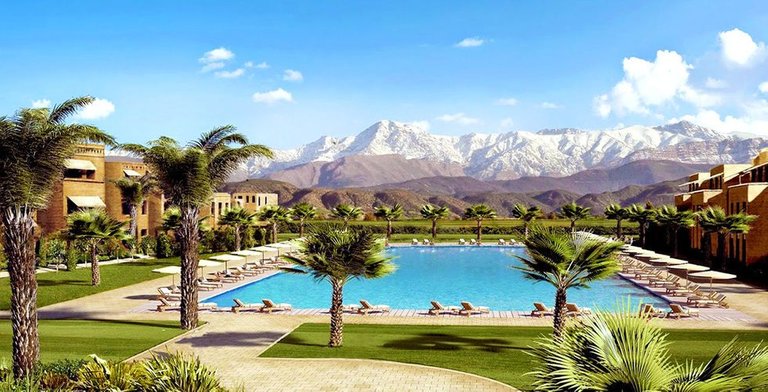
1- Religious migrants called the Almoravids meandered to the Tensift River, where they fabricated their capital, setting up Marrakech in 1062.

2- The name Marrakech is established in the Berber stage murr akush signifying "the place where there is God." But another hypothesis says that the name originates from the Arabic words murra kish, which means "go by rapidly"— a notice to voyagers to be careful about hoodlums and wild creatures.

3- Marrakech is much of the time alluded to as the Red City, as a result of the shade of the dividers encompassing its old town region.
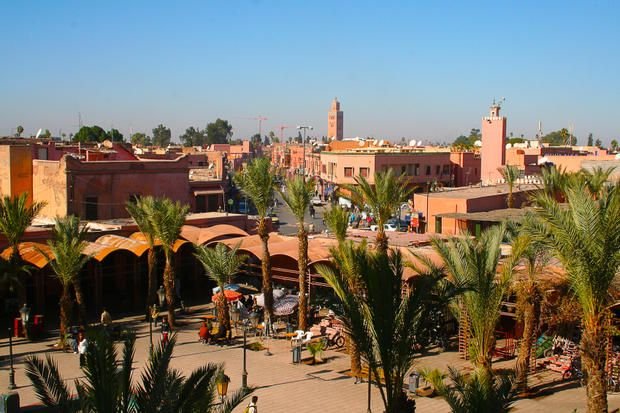
4- From the summit to the sand to the ocean: Marrakech's prime area is only 50 miles north of North Africa's most astounding pinnacle, Toubkal, in the Atlas Mountains; 122 miles northwest from Ouarzazate, the entryway to the Sahara Desert; and 110 miles east of the port city of Essaouira.
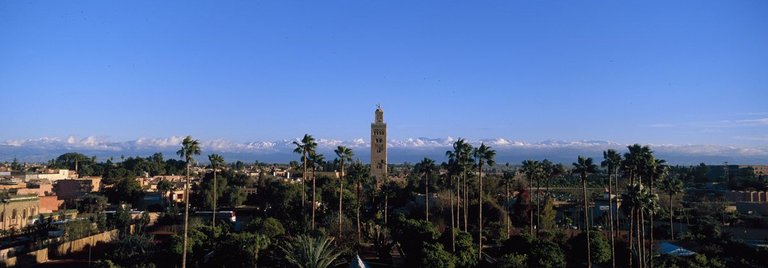
5- Marrakech was one of Morocco's Imperial Cities, or memorable capitals, amid the Berber Empire. The others were Fes, Meknes, and the present capital, Rabat.

6- Amidst World War II, Winston Churchill asked Franklin D. Roosevelt to go with him on a hike to Marrakech following the Casablanca Conference: "You can't come the distance to North Africa without seeing Marrakech," he said. "I should be with you when you see the sun set on the Atlas Mountains." So the two set off on a 1943 adventure, driving down from Casablanca. Churchill remained a day longer, occupied with one of his most loved leisure activities—painting. His canvas of the Atlas Mountains' view wound up being the main fine art he painted amid the war.

7- The 700 hectares of Marrakech's eleventh century Medina was assigned an UNESCO Heritage Site in 1985, on account of its "noteworthy number of showstoppers of engineering and workmanship."

8- One case? The Bahia Palace, which was worked in two stages by a father-child group around 1900. Covering 19.8 sections of land, the structure emerges because of its sporadic plan. Today, the Moroccan Ministry of Cultural Affairs is housed in the building and is regularly used to have remote dignitaries.

9- The 230-foot-tall Koutoubia Mosque tower isn't quite recently Marrakech's most emblematic point of interest. Five times each day, the call to petition, or "adhan," rings from the pinnacle as the dominatingly Muslim populace stops to love. Legend has it that the first mosque wasn't legitimately lined up with Mecca, and must be remade by the Sultan Yocoub el-Mansour in the twelfth century.
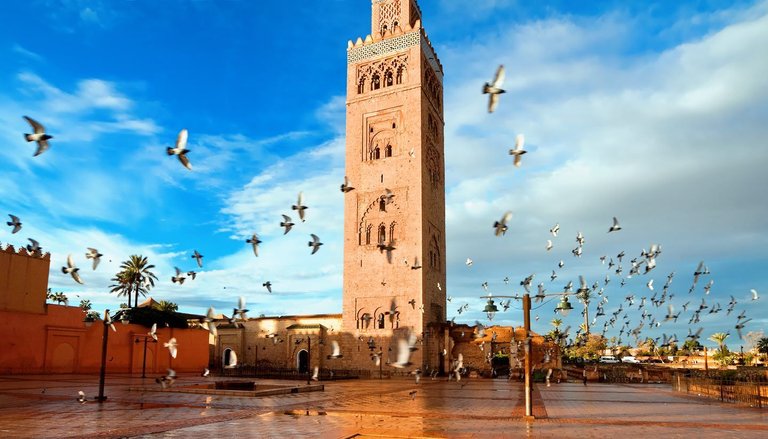
10- When all is said in done, non-Muslims aren't permitted to visit mosques around Morocco, yet comparably mind boggling Islamic engineering is on full show at Marrakech's Medersa Ben Youssef, a college established in the fourteenth century and remade in the sixteenth century. Covering 17,976 square feet and including 132 dormitories rooms, the school was one of the biggest in North Africa until the point when it close down in 1960. Twenty after two years, it revived as a historical center.

11- Parlez-vous Arabic? Despite the fact that the official dialect in Marrakech is Arabic, numerous local people utilize the Berber dialect Amazigh and in addition French.
12- Marrakech's extraordinary lodgings have baited Hollywood movie producers for quite a long time. Among motion pictures taped in the Red City are 1956's The Man Who Knew Too Much (at the Mamounia Hotel), 2010's Sex and the City 2 (at the Taj Palace), and 2015's Mission: Impossible—Rogue Nation, shot in the Selman Hotel.
13- The Moroccans, much the same as us, adore Bill Murray. He shook the kasbah (well, actually, the medina) at the fifteenth yearly Marrakech International Film Festival in December 2015, where in the wake of getting the Etoile D'Or Lifetime Achievement Award, he facilitated a screening of Ghostbusters for more than 20,000 fans in Jemaa el-Fnaa square. "I'm here in light of the fact that I cherish this nation and I adore these individuals," Murray pronounced.
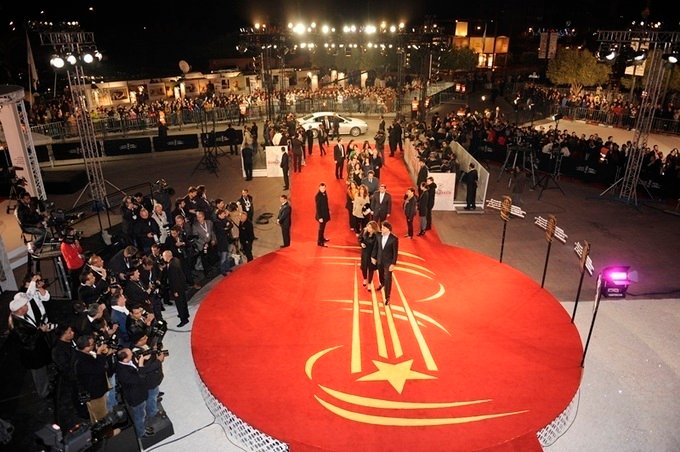
14- Gaze upward and see white storks settling along best of the red-tinted defenses of the El Badi Palace. The grand structure was worked by Saadian sultan Ahmed al-Mansour in the sixteenth century with cash got from the Portuguese after the Battle of the Three Kings. After one century, his successor Moulay Ismail stripped the royal residence of every one of its extravagances. However even in its stark express, the 426-foot long century patio—including four indented gardens isolated by pools—still satisfies its name, which means "The Incomparable."
15- A similar sultan al-Mansour, who passed on in 1603, is encompassed by as much extravagance in death as he was in life. Open just through a small way in the Kasbah Mosque, his Saadian Tombs' catacomb is made of Italian marble and honeycomb plasterwork overlaid in unadulterated gold.
16- At the point when Yves Saint Laurent and his accomplice Pierre Bergé discovered that Marrakech's Jardin Majorelle, which they found on their first visit to the city in 1966, was being changed into an inn complex, they purchased the property and lived in the Villa Oasis on the grounds. Presently a Roman column commemoration remains in the garden, as a tribute to the mold fashioner who kicked the bucket in 2008.

17- Regardless of its numerous personalities, the spirit of the 954-year-old district lies in its old town, where local people and visitors blend in the landmass' biggest square, Jemaa del-Fnaa, to be amazed by wind charmers and monkeys, enjoy the more than 100 sustenance trucks, or essentially blend among local people.
18- Uber chic dance club and golf resorts might be inside city limits, however in 2010, it was accounted for that 20,000 homes in Marrakech still had no entrance to power or water.

19- Marrakech was formally made a sister city of Scottsdale, Arizona, in January 2012. Their likenesses? Both forsake urban areas "share interests in atmosphere, tourism, social legacy, and golf administration."
20- Development for the 45,240-situate Stade de Marrakech started in 2003, however the Olympic-sized stadium didn't open until 2011. Principally utilized for soccer, the scene has facilitated matches for both the 2013 and 2014 FIFA Club World Cup Finals.

21- Walk around the lanes of Marrakech and you'll rapidly find that there are felines around each corner. In spite of the fact that the cats are once in a while kept as pets, they're for the most part all around bolstered. Some even move to neighborhood shops.

22- In spite of the fact that numerous Moroccan men ladies still wear djellabas, or conventional baggy robes with a hood, local people do strip down at the hammans—sexual orientation isolated bathhouses peppered through Marrakech's medina. The experience is more than about thoroughly scouring with savon noir cleanser and ghassoul mud covers; Moroccans are known to babble and talk shop while gathering.

23- Since 1987, the city has facilitated a yearly marathon, which draws around 6000 sprinters every year from everywhere throughout the world. The primary spot finisher in the ladies' inaugural race was 14-year-old Nadia Ouaziz-Colombero, one of the most youthful competitors to ever win a universal marathon.
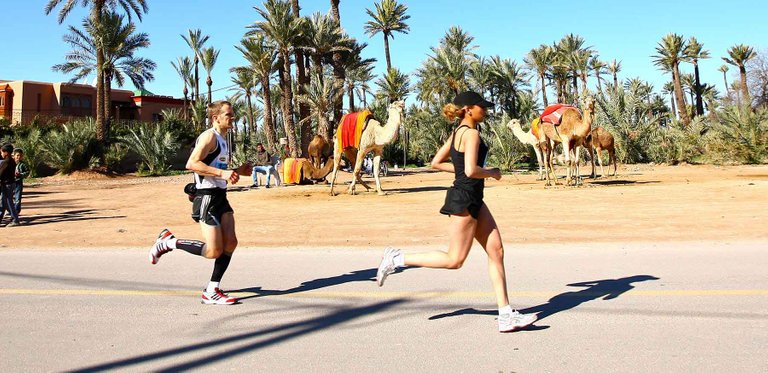
24- In the case of feasting along the edge of Jemaa el-Fnaa square or remaining at one of the many riads (Moroccan houses with an open yard or garden in the center), get away from the city clamor by moving to the housetops. Careful greenery enclosures speck the best floor all encompassing perspectives of the snow-topped Atlas Mountains.

25- Marrakech Menara Airport, outlined in 2006 and finished in 2008, routinely shows up on records as a standout amongst the most striking terminals on the planet. The solid lines of the ultra present day geometric examples are appeared differently in relation to sensitive points of interest compared to the complexities of Morocco's notable structures.

very nice ...
Congratulations @soufianeboutaleb! You have completed some achievement on Steemit and have been rewarded with new badge(s) :
Click on any badge to view your own Board of Honor on SteemitBoard.
For more information about SteemitBoard, click here
If you no longer want to receive notifications, reply to this comment with the word
STOP